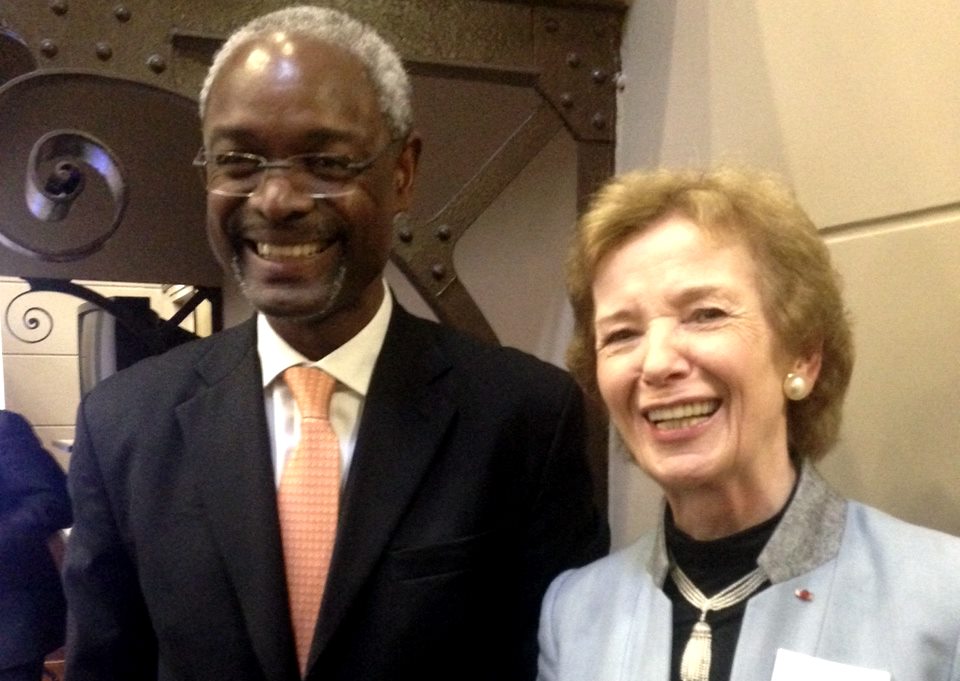On Friday 4 December Mary Robinson delivered a keynote address at the inaugural Climate Law and Governance Day in the École de Droit de La Sorbonne in the margins of the 21st Conference of the Parties (COP) in Paris.
The meeting brought together over 200 experts, leading academics and practitioners to debate the needs and opportunities facing the world in relation to law, policy and governance of a carbon-constrained future and plan ways that the justice community can support the implementation of the Paris climate agreement.
Speaking at the opening plenary, which focused on the rule of law, human rights and climate justice, Mary Robinson highlighted the fact that “Climate change is an international problem of economic, social, cultural and humanitarian character. It is not, as it was once perceived – and perhaps unfortunately is still perceived by some – a narrow environmental issue. It is about development, economics, society and human rights; and our responses to it will only be effective if they are upheld by the rule of law and guided by human rights norms.”
Mary Robinson was joined by fellow panellist Dr Ibrahim Thiaw, Deputy Executive Director of the United Nations Environment Programme. Dr Thiaw outlined the important links between climate change and human rights law, and stressed the need for strong environmental law in making the Paris agreement a success as “even the best climate policies are useless in the absence of sound laws, smart regulations and strong people with the courage to enforce them.”
Mary Robinson recalled the conclusion of the International Bar Association (IBA) Task Force – that the law as it stands was not created with the challenge of climate change in mind and is not always well suited to address it.– She put this as a call to action for legislators, law professors and the legal profession around the world, “to create new policies and law so that they drive and accommodate a transformation to zero carbon, climate resilient development.”
In concluding her address Mary Robinson pointed to the importance of the law as a transformative tool. She said:
We need to draw on it now to create the means, the legal incentives and protections, to drive an inclusive and equitable transition away from fossil fuels.”
Related Links
Find out more about our work on Human Rights and Climate Change.
Mary Robinson keynote address: Securing Climate Justice and Human Rights


